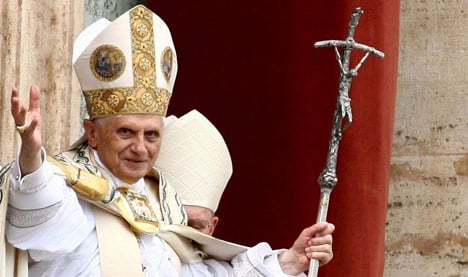“The then archbishop had no knowledge of the decision to reassign (Reverend Peter Hullerman) to pastoral activities in a parish,” the Vatican said in a statement, adding that it “rejects any other version of events as mere speculation.”
Hullerman was suspended from his duties in the northern German town of Essen in late 1979 over allegations that he abused an 11-year-old boy. Archbishop Joseph Ratzinger, who is now the pope, led a meeting approving Hullerman’s transfer to Munich the following January despite a memo warning that the priest was a potential “danger,” the Times reported on Friday.
Six years later, in 1986, Hullerman was found guilty of molesting boys in another Bavarian parish.
“The article in The New York Times contains no new information beyond that which the archdiocese has already communicated concerning the then archbishop’s knowledge of the situation of Father H.,” the Vatican said.
The Munich archdiocese issued a statement on March 12 confirming that Benedict “took part” in the decision to transfer Hullerman, while former vicar-general Gerhard Gruber took “all responsibility” for the move.
“The repeated employment of H. in priestly spiritual duties was a bad mistake. I assume all responsibility,” Gruber said in the statement.
New allegations of child sex abuse against Hullerman emerged this week dating both from his time in Essen and from 1998 in a different southern town.
In 1980, Ratzinger “was in a position to refer the priest for prosecution, or at least to stop him from coming into contact with children,” the Times wrote. Despite the warning signs “Father Hullerman went from disgrace and suspension from his duties in Essen to working without restrictions as a priest in Munich,” it added.
The case comes on the heels of another New York Times accusation on Thursday according to which Ratzinger failed to act over an American priest accused of molesting up to 200 deaf children between 1950 and 1974.



 Please whitelist us to continue reading.
Please whitelist us to continue reading.
Member comments